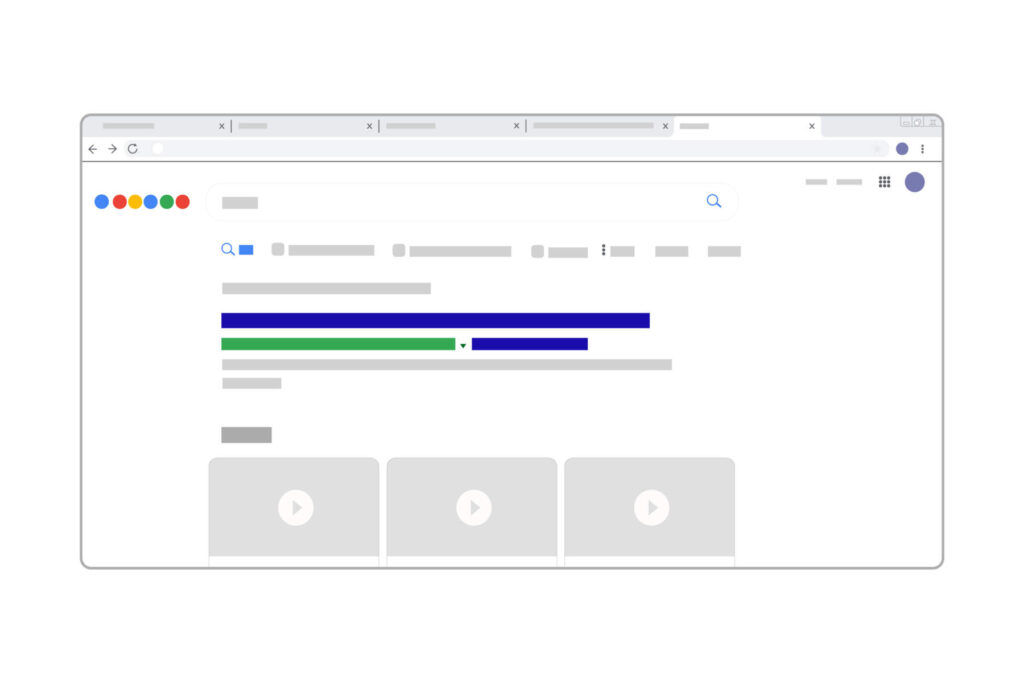
Google has long been the dominant search engine and venue for accessing information online. Their product now holds over 80% market share (Forbes).
Over the years, Google has continuously evolved its algorithm to provide users with more relevant (and personalized) results. Personalization can be defined as the software’s efforts to tailor the list of results to a query based on individual preferences, location, search history, and other factors. In 2023, the issue of SERP (Search Engine Results Page) discrepancy between users has become more significant. This direction is concerning for a few reasons:
- In most cases, one result is better than another regardless of who typed in the query. That result has deservedly held the top spot for years, but increased personalization means traffic to those sites may fluctuate.
- Internet marketers used to be able to rely on tools like Moz, SEMRush, Ahrefs, AWRCloud, and manual searches to gauge the performance of their client’s sites. Now it’s almost impossible to predict the order in which websites will appear for a potential customer.
- We live in a time with growing partisan divides and unprecedented speeds at which misinformation can spread. Personalization can create a “filter bubble,” where users are primarily exposed to content that aligns with their beliefs and interests. This can lead to a limited perspective and reinforce existing biases.
Why doesn’t Google turn off personalization?
Google’s personalized search has come a long way since its inception and has proven to do more good than harm for the average user’s experience. The introduction of machine learning algorithms and user behavior analysis allowed Google to refine search results based on more than individual preferences. At its core, personalization is designed to enhance the search page by delivering more relevant and contextually appropriate information to users. Plenty of words carry many different meanings, and Google’s software has gotten quite good at assuming which meaning a given user is looking for. Even when a user types a single word into the search bar, Google rarely returns results for a different term’s meaning.
An adult searching for “Buffalo boats” while connecting to the internet in Buffalo, New York, will see a list of marine dealers near them, not barges made for transporting large animals, boats with pictures of a buffalo on them, or results from any of the 13 other states that have a town named Buffalo. From that two-word search term and the user’s physical location, Google can deduce what they’re actually shopping for.
Factors Influencing personalized search
-
Search History:
Google takes into account a user’s past search queries and interactions to better understand their interests and preferences. It uses this information to tailor search results accordingly. If someone visits a specific website often, that website might be intentionally pushed down because Google has assumed they are searching for alternatives.
-
Location:
Localized search results have become increasingly important, as Google aims to provide users with relevant information about their geographic location. As a device travels across town, the results for any localized keywords will change.
-
Device and Context:
Google considers the device being used, such as a desktop or mobile, and the search context, such as time of day or recent events, to deliver more personalized results.
-
Social Connections:
Google may also incorporate social signals from a user’s prior interactions, reviews, and email history to determine search rankings.
What Does This Mean for SEO?
Search engine optimization (SEO) is still as important as it ever has been, potentially even more so. Ten years ago, if a website held the #1 spot for a handful of high-value keywords, the SEO Strategist working on that campaign could begin work on other terminology while simply monitoring the phrases that were already locked in. Today, every user will see a slightly different results page: Each time a search is processed, every website will have to fight for positioning against the specific user’s personalization factors. Someone 20 miles away from an HVAC contractor’s office that types in “A/C repair in Phoenix, AZ” will not see the same results as someone living across the street.
-
-
Strategic Content Additions
A key strategy in any good SEO campaign is gradually widening the topical strategy over time. As Google indexes more and more content on the website, their understanding of the business’s offerings and market area can also increase. It’s important to continue serving new and unique information that connects the business to every city and township within their service area, not just the verified physical address at the bottom of the website.
-
Performance Across All Device Categories
Second to physical location, one of the key personalization factors is the size and type of device the searcher is using. If that user is browsing on a smartphone, Google will push down results that load slowly on mobile or fail to provide a good touchscreen user experience.
-
Earn 5-Star Reviews
Google essentially uses the terminology and location of each reviewer to fact-check SEO campaigns. If a given website claims to do business in five different markets, but all of the online reviews are contained in a small area, Google has reason to believe that the service area was overstated. The same correlation can be seen with service/product offerings. Getting happy customers to leave reviews can help increase rankings, especially for other users with similar browsing habits.
-
In Conclusion
Keyword rankings are important, but website traffic indicates how well you rank. If your website traffic is consistently increasing, it is a safe bet that your keyword visibility/rankings are also increasing!